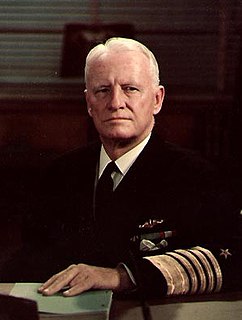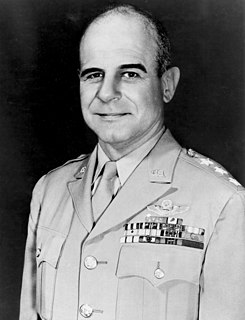A Quote by Chester W. Nimitz
It is the function of the Navy to carry the war to the enemy so that it is not fought on U.S. soil.
Related Quotes
The trouble is that once America goes off to war, it can't very well return without having fought one. If it doesn't find its enemy, for the sake of the enraged folks back home, it will have to manufacture one. Once war begins, it will develop a momentum, a logic and a justification of its own, and we'll lose sight of why it's being fought in the first place.
I'm a Veteran. I was in the Navy, in the submarine corps. I come from a military family. Both of my grandparents were in World War II and retired as officers. One fought in the Pacific and one fought in Europe. The whole family was in the war. I grew up exposed to it and hearing the stories, but the stories I heard weren't kind of the whole "Rah, rah, rah! We saved the world!" They were about the personal price and the emotional price.
The Thirty Years' War, 1618-1648, was a series of conflicts that became the last great struggle of religious wars in Europe. It was fought almost exclusively on German soil...but before the war ended, it involved most of the nations of Europe. The underlying cause of the war was the deep-seated hostility between the German Protestants and German Catholics - with the Jesuits and Cardinal Richelieu, who was the real ruler of France, fanning the fires to accomplish their ends.
When I assumed command of the Pacific Fleet in 31 December, 1941; our submarines were already operating against the enemy, the only units of the Fleet that could come to grips with the Japanese for months to come. It was to the Submarine Force that I looked to carry the load until our great industrial activity could produce the weapons we so sorely needed to carry the war to the enemy. It is to the everlasting honor and glory of our submarine personnel that they never failed us in our days of peril.



































